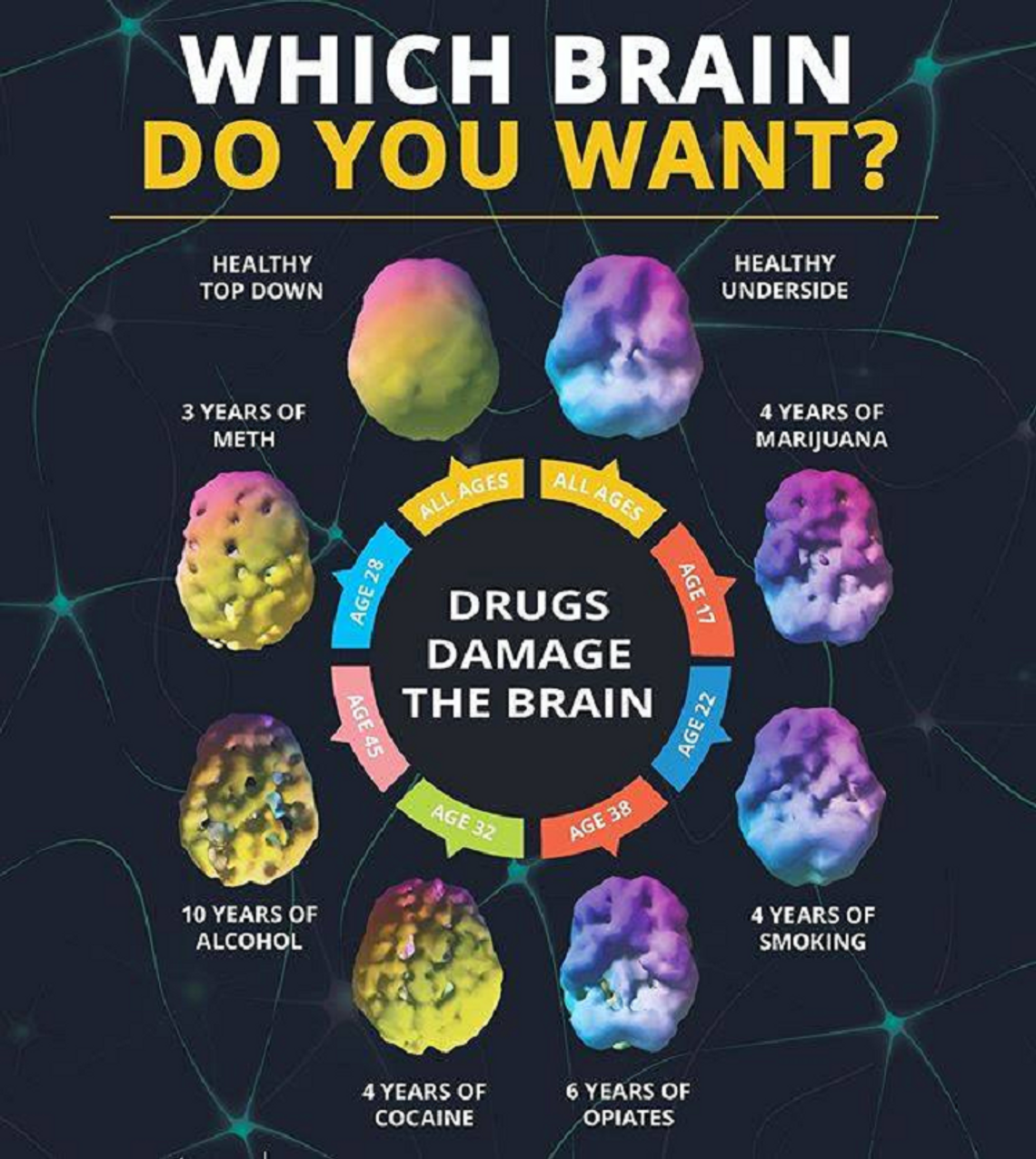This is Part IV of a series of articles where I address marijuana use and cite a book and a published study. For more details on both sources check out the information at the end of this article.
Not everyone who uses marijuana is going to develop psychosis and not everyone who uses marijuana for a “medical” issue is a drug addict. However, for whatever reason you might use marijuana, there is scientific evidence that you are altering your brain. Do you remember the commercial in the ’70s, “This is your brain on drugs,” and an egg gets cracked into a hot frying pan and the voiceover says, “Any questions?” We laughed and took risks regardless of all the warnings. It's no different today. People take risks. I’ve provided an illustration today from SPECT imaging published by Dr. Daniel Amen who’s authored several books about how to rehabilitate your brain. “The End of Mental Illness” describes what happens to your brain when you use substances, have a traumatic brain injury or illness, Alzheimer’s/dementia, and more.
In a study led by Dr. Arpana Agrawal, PhD. he states, “As marijuana legalization sweeps the US more studies are being conducted to determine THC addiction and safe levels. But there is more. What if you have a predisposition to addiction and psychosis due to marijuana use?” A study exploring possible genetic influences on cannabis use disorder identified two regions in our DNA that appear to contribute to one’s risk of becoming dependent on marijuana. The findings, published Oct. 20 in Lancet Psychiatry, stem from research by an international team at Washington University School of Medicine in St. Louis. They analyzed DNA and other data from almost 21,000 people diagnosed with cannabis use disorder and 360,000 people who did not have that diagnosis. They found an association with cannabis use disorder in a region of DNA near chromosome 7 previously linked to language development and risk-taking behavior. They also implicated a region on chromosome 8, that had been linked to cannabis use disorder in prior studies. It also has been linked to nicotine addiction. “It has been estimated that up to 20% of those who use cannabis will develop problems,” said Dr. Agrawal. “When we think about why some people who use cannabis develop problems with it, about 50% of that risk is due to genetics. We identified two variants – there are likely to be many, many more genes.”
Daniel D. Amen, MD, states in his book “in 2016 on more than 1,000 marijuana users, [they] showed that virtually every area of the brain was lower in blood flow compared to healthy scans, especially in the hippocampus, one of the brain’s major memory centers. In 2018 the world’s largest brain imaging study on 62,454 SPECT scans on how the brain ages, marijuana was associated with accelerated aging in the brain.” Dr. Amen suggests caution when prescribing “medical” marijuana to patients because of the effects on the brain which are hard to reverse.
Can brain damage from substance use be reversed? A percentage of the damage can be repaired but complete reparation is questionable. What can we do to help rejuvenate our brain once the damage has been done? Foremost is to abstain from using the substance, or behaviors, which damage our brain. This can mean getting into a treatment program, such as New Frontier Treatment Center in Fallon, or getting and staying sober on your own. Dr. Amen promotes remembering that your brain is an organ and anything that affects other organs also affects your brain. Eating healthily, taking vitamins to replenish your depleted system, and exercising your body and mind are a few things you can do to rehabilitate your brain but the most important thing you can do is to stop using substances. Ask for help from people who have studied and trained to help. Talk to your family about your use, or their use, and support each other. There is one simple thing you can do, recognize that you have a responsibility to address your brain health and the possible damage from substance use and abuse.
For more information read “The End to Mental Illness,” by Daniel G. Amen, MD, Carol Stream, IL, Tyndale House Publishers, 2020, or check out









Comment
Comments